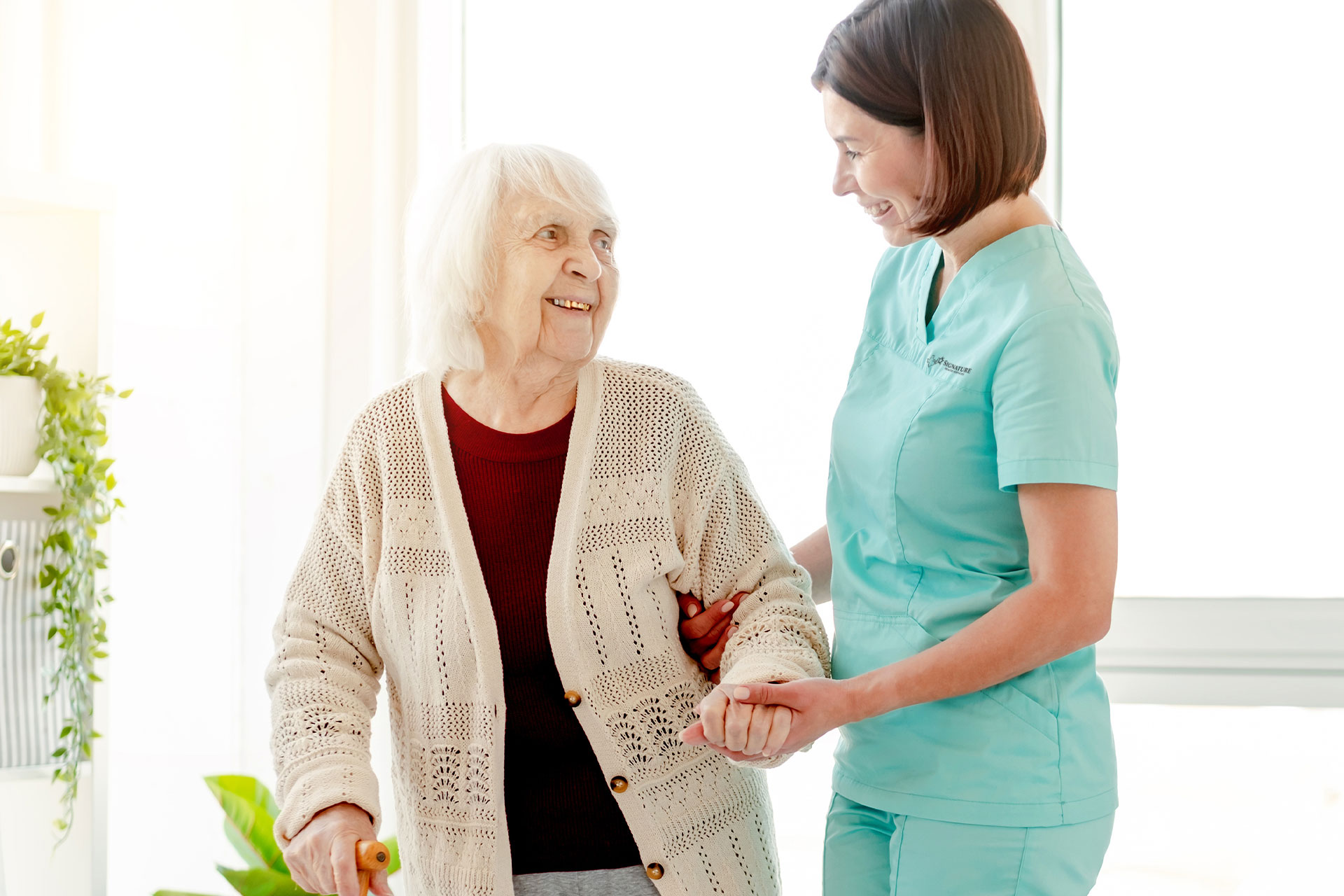April 7 marks the start of the National Integrated Respiratory Care Week. This week aims to recognize the crucial role that respiratory care therapists, physicians, nurses, and caregivers play in providing quality care to patients who depend on ventilators to breathe.
Integrated respiratory care combines specialized knowledge, advanced technology, and patient education, producing powerful results. This approach benefits patients with various respiratory conditions, such as lung disease, muscular dystrophy, COPD, ALS, and others who require ventilators.
As respiratory care specialists and healthcare professionals continue to fight a global pandemic caused by a respiratory virus, celebrating the benefits of integrated respiratory care is more important than ever.
Challenges Ahead
In 2024, healthcare, particularly respiratory care, has undergone significant evolution. The COVID-19 pandemic served as a trigger, propelling the development of integrated care to meet the challenges posed by both chronic and acute respiratory diseases. This evolution addressed existing conditions and accommodated emerging respiratory ailments, building a paradigm shift in care models. Central to this transformation is the emphasis on early detection, continuous monitoring, and enhanced access to effective treatments.
In response to these evolving needs, National Integrated Respiratory Care Week reminds professionals, caregivers, and families of their dedication to delivering quality care to patients reliant on ventilators. This week’s essence highlights everyone’s collaborative efforts to maximize the quality of life for ventilator users worldwide. This observance acknowledges caregivers’ pivotal role and their ongoing commitment to respiratory care excellence.

Ensuring Continuity of Treatment and Improved Patient Outcomes
At the forefront of integrated respiratory care stands the ever-evolving innovations in the field. Medical devices such as ventilators, oxygen concentrators, cough assistants, suctioners, and nebulizers represent a pioneering solution catering to diverse respiratory conditions, ranging from lung disease to ALS. This integration streamlines patient care and facilitates seamless transitions from hospital to home settings, ensuring continuity of treatment and improved patient outcomes.
Integrated respiratory care embodies a holistic, patient-centric approach characterized by proactive coordination among healthcare professionals. This collaborative model aims to optimize individual patient experiences while enhancing long-term outcomes for populations affected by respiratory ailments. As we commemorate National Integrated Respiratory Care Week this April, it serves as a timely reminder of this approach’s transformative impact on patient care delivery.
What Is Integrated Respiratory Care?
It is defined as patient-centered and coordinated care custom-made to the individual requirements and preferences of respiratory patients, their families, and caregivers. The integrated care model has moved from traditional health care to a more personalized approach to managing the provided services.
Integrated care will likely play a prominent role in the healthcare industry’s evolution in the following years. However, integration is not limited to primary care services. It might encompass team efforts between health and social care, mental and physical health, and working with professionals with diverse backgrounds and skills.

A Patient-Centered Care
Unfortunately, due to unforeseen circumstances brought about by the virus, more patients report living with long-term respiratory conditions daily. Working with a home care team is vital for their well-being. Integrated respiratory care should be delivered through clinical management and a multidisciplinary team without walls.
The main goal of integrated respiratory care should be to enhance patients’ experience with lung conditions and improve home care outcomes for people with respiratory diseases. It is crucial to rethink the traditional roles and responsibilities of the healthcare team. Still, this new model requires respiratory therapists and specialists to bundle a holistic approach to patient care.
The Most Common Respiratory Conditions
Five Essential Types of Respiratory Equipment are Used for Different Purposes:
- 1
Ventilator – A machine that moves air in and out of the patient’s lungs if they are unable to breathe on their own or are breathing inadequately.
- 2
Oxygen concentrator – A machine that removes nitrogen from a gas supply in order to provide air that is rich in oxygen.
- 3
Humidifier – Adding moisture to the air prevents dryness, which can cause irritation in various parts of the body.
- 4
Continuous Positive Airway Pressure (CPAP) machine – It is used to treat obstructive sleep apnea by delivering a continuous air pressure stream that keeps the person’s airways open at night.
- 5
Bi-level Positive Airway Pressure (BiPAP) machine – It helps patients with chronic obstructive pulmonary disease (COPD) maintain a consistent breathing pattern during the night or when experiencing symptom flare-ups.
How to Observe National Integrated Respiratory Care Week
In light of these developments, raising awareness about respiratory health and preventive measures is imperative. By adopting a proactive approach, individuals can safeguard their respiratory well-being through lifestyle modifications such as smoking cessation, balanced nutrition, and regular exercise. Furthermore, public engagement initiatives, including National Integrated Respiratory Care Week, are essential in inspiring community support and appreciation for respiratory caregivers.
We must recognize the indispensable contributions of respiratory therapists, pulmonary specialists, and healthcare professionals. Their unwavering dedication ensures that patients with respiratory conditions receive the highest standard of care, enhancing their quality of life and overall well-being.
Call Signature 24/7 at 800-277-8291 for excellence in skilled and compassionate home health care.

Your Complete Home Health Care Solution!
ALWAYS ON CALL
| Monday – Sunday | 24 / 7 |
1 (800) 277-8291 (option 1)
COUNTIES SERVED
OUR VALUES
TESTIMONIALS

I love all of my home health people.

All Signature staff as well as therapy were very helpful.

Their services have always been great.

I really love my physical therapist. Gary has helped me so much.

This has been one of the best agencies. Very caring nurses.

I’ve had a really good physical therapist and really nice nurses.

I have had excellent care & would recommended them to anyone.

Gary Dixon is the very best physical therapist in Baytown and Houston Area.

